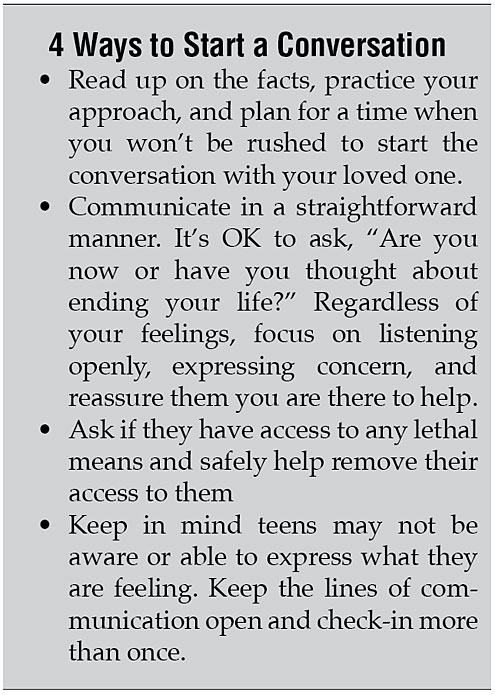On Oct. 8, amid continued concern about the impact of the COVID-19 pandemic on youth mental health, Gov. Gavin Newsom signed into law a bill legislators hope will enable educators to better identify and address student mental health concerns.
Authored by Assemblymember Jesse Gabriel (D-Woodland Hills), the measure is the culmination of several years of effort by parents, educators, and mental health professionals.
Authored with Assemblymember Patrick O’Donnell (D-Long Beach), chair of the Assembly Education Committee, Assembly Bill 309 will require the California Department of Education to create a mental health referral protocol for use by schools.
Aptos High School parents felt anxious after a 17-year-old senior was stabbed to death on campus Aug. 31, allegedly by two classmates, age 17 and 14, involved in gangs.
Because the suspects are under 18, their names will not be released and their judicial matters will be behind closed doors. The family of the teen who died has been so shaken they have not released the name.
A family friend who organized a GoFundMe to help the family pay for bills raised $59,000; she wrote that Gerardo died in the stabbing and invited community members to wear a mask to the memorial service at Ave Maria in Watsonville.
The Pajaro Valley school board, which had voted in 2020 to end armed officers ━ school resource officers ━ on its high school campuses, voted to restore that service to address safety.

“Like parents across California, I’m deeply concerned about the impact the pandemic has had on our kids’ mental health and emotional wellbeing,” said Gabriel. “California was facing a student mental health crisis prior to the pandemic, and the current situation is even more troubling. Our legislation will equip teachers with better tools and resources so that they can help our students navigate these extremely challenging times, particularly as we continue reopening our schools and bringing students back into the classroom after months of distance learning. I applaud Gov. Newsom for his leadership in signing this bill.”
Data suggest the COVID-19 pandemic, which forced many schools into instruction online, has exacerbated the issues for students.
Prior to the pandemic, one in five children exhibited signs of a mental health disorder, such as changes in behavior, eating habits and activity levels, with California adolescents reporting higher rates of depressive symptoms than the national average.
Recent data show the proportion of emergency room visits related to mental health crises has increased dramatically for adolescents since the start of the pandemic. One poll found that 25 percent of those surveyed (5,470 between age 18-24) had contemplated suicide in the previous 30 days. The C.S. Mott Children’s Hospital found 46 percent of parents reported their child has shown signs of a new or worsening conditions since the start of the pandemic.
“The mental health of many children in California is already at a crisis point,” O’Donnell said. “The stress of the COVID-19 pandemic has only compounded this problem. We are seeing increasing rates of anxiety, depression, and suicide ideation among our young people.
In addition to the record funding we included in the current state budget to address this issue, AB 309 will provide schools with model mental health referral protocols that will enable our teachers and other school staff to connect students with the help they need.”
Since the fatal stabbing, Pajaro Valley school have increased mental health counselors on campuses. Pajaro Valley Prevention and Student Assistance, based at 411 E. Lake Ave., Watsonville, serves the Pajaro Valley school district.
Suzie Skadan, president of California School Nurses Organization., supported AB 309.
She said, “School nurses are often the initial contact person in the school setting to identify a student with a possible mental health need, then connect families to the on-campus or local service provider. Providing an easy-to-follow referral protocol system, developed by qualified school professionals, will increase and enable a greater number of school staff to assist with student mental health referral and improve connecting students and families with the tools for improved mental health and well-being.”
The Citizens Commission on Human Rights opposed AB 309, saying 39 percent of mental health issues are caused by physical disease, which the bill did not address.
•••
For more information, see www.suicideispreventable.org/know-the-signs/